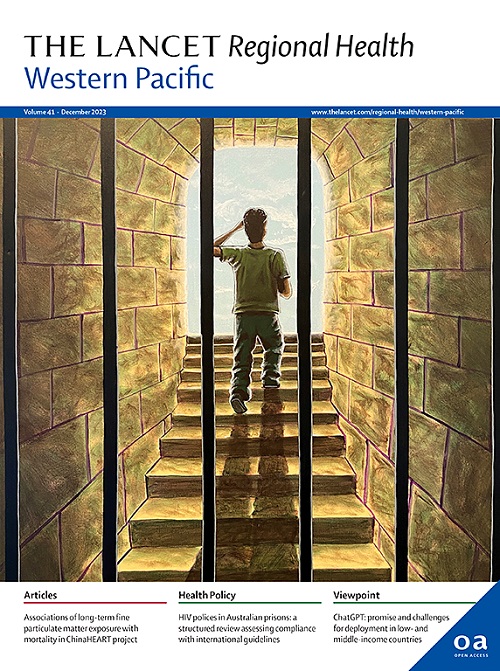为 2020 年东京奥运会和残奥会期间的传染病做好准备:在奥运会之后推进卫生系统的发展
IF 7.6
1区 医学
Q1 HEALTH CARE SCIENCES & SERVICES
引用次数: 0
摘要
大规模国际聚会构成重大的卫生安全挑战,需要对传染病进行强有力的防范。这一进程虽然要求很高,但可以利用政治和社会的高度关注来加强核心能力。尽管日本有先进的传染病公共卫生系统,但仍有薄弱环节。2020年东京奥运会和残奥会(2020年东京奥运会)的筹备工作通过三步走的方法战略性地加强了国家传染病系统:(i)评估风险、准备情况和差距;通过加强或建立制度解决已查明的差距;(iii)开展涉及多个利益相关者的业务演习。2019冠状病毒病(COVID-19)导致2020年东京奥运会推迟,这使得奥运会期间采取的严格公共卫生措施成为人们关注的焦点。然而,这些主要的常规步骤需要进一步强调。这种方法强调了它们在游戏时间之外的适用性,是举办大型聚会的国家的典范。本文章由计算机程序翻译,如有差异,请以英文原文为准。
Preparedness for infectious diseases during the Tokyo 2020 Olympic and Paralympic Games: advancing the health system beyond the games
Mass international gatherings pose significant health security challenges and demand robust preparedness for infectious diseases. Though demanding, this process can leverage heightened political and social attention to fortify core capacities. Despite Japan's advanced public health system for infectious diseases, there were still areas of vulnerabilities. Preparation for the Tokyo 2020 Olympic and Paralympic Games (Tokyo 2020) strategically enhanced the national system for infectious diseases through a three-step approach: (i) assessing risks, readiness, and gaps; (ii) addressing the identified gaps by strengthening or establishing systems; and (iii) performing operational exercises involving multiple stakeholders. COVID-19, which led to the postponement of Tokyo 2020, brought the strict public health measures taken during the event into focus. However, these primary conventional steps need to be further highlighted. Emphasizing their applicability beyond games time, this approach is a model for countries that host large-scale gatherings.
求助全文
通过发布文献求助,成功后即可免费获取论文全文。
去求助
来源期刊

The Lancet Regional Health: Western Pacific
Medicine-Pediatrics, Perinatology and Child Health
CiteScore
8.80
自引率
2.80%
发文量
305
审稿时长
11 weeks
期刊介绍:
The Lancet Regional Health – Western Pacific, a gold open access journal, is an integral part of The Lancet's global initiative advocating for healthcare quality and access worldwide. It aims to advance clinical practice and health policy in the Western Pacific region, contributing to enhanced health outcomes. The journal publishes high-quality original research shedding light on clinical practice and health policy in the region. It also includes reviews, commentaries, and opinion pieces covering diverse regional health topics, such as infectious diseases, non-communicable diseases, child and adolescent health, maternal and reproductive health, aging health, mental health, the health workforce and systems, and health policy.
 求助内容:
求助内容: 应助结果提醒方式:
应助结果提醒方式:


